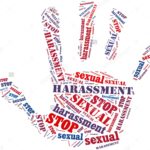
HBO’s “Last Week Tonight” opened its 2017 season on an interesting note. While the popular Emmy-winning news comedy show has never shied away from delivering scathing political commentary, its first main piece of the year was about how the newly-installed Commander-in-Chief, Donald J. Trump, is a dangerous machine of lies. It’s a hefty and bold accusation for an entertainment show to make, even when you consider “Last Week Tonight” has affected some actual change (notably in net neutrality). Towards the end of the segment, Oliver pleaded with the media and the viewers to hold Trump and his team accountable for any misinformation they may spread and for the actions they commit. And if enough people push this position, real consequences might come.
Looking back, that segment almost feels like a foretelling of a theme of 2017: holding powerful men accountable for terrible deeds. Over the course of the past eleven months, we have seen many prominent and powerful men in many industries forced to face consequences for reportedly bad behavior — Travis Kalanick stepped down as UBER’s CEO, Harvey Weinstein was ousted from his film production company and the Academy of Motion Picture Arts and Sciences, Warner Brothers studio has severed ties with director Brett Ratner, Fox News fired Bill O’Reilly, and just recently NPR’s Vice President of news and editorial director Michael Oreskes was placed on indefinite leave. All of these cases stem from one commonality: all the men ousted had been accused of sexual harassment and/or assault.
Stories of powerful men behaving badly and intimidating those they perceive as weak have been around forever. Yet this sudden turn to accountability and punishment for these behaviors are especially surprising. Why are these men being brought to task now? And why is this so significant?
To set the scene, we need to examine where the reported predation occurred and the people who were targeted. All five of the aforementioned cases revolved around the men’s work, and their accusers were women. Many areas of work have historically been dominated by men, and women in these spheres often face tough, if not actively toxic, work environments, where their contributions are undermined and harassment can be commonplace. Much has been made of Hollywood’s “casting couch” approach in making female actors famous, but women in all fields have been sexually propositioned with the shallow promise of keeping or advancing their careers.
Many women remain silent about these overtures since speaking out against such treatment can have damaging consequences, as evidenced by Ellen Pao’s recent lawsuit against a Silicon tech company for discriminating against her upon complaining of sexual harassment. This creates an atmosphere where women are expected to tolerate toxic behavior from predatory men just to get by and where male colleagues are expected to let these predators’ actions slide. Many prominent people in Hollywood responded to the Weinstein allegations with statements saying they had previously thought Weinstein was simply “a flirt” or just made a habit of “hitting on women.” Harassing behavior is not exclusively directed towards women, however; men have been victims of sexual harassment and have failed to report it for the same reasons. Harassment has simply been normalized in the workplace for a very long time.
So what accounts for all the recent upswell of people publicly calling out abusers and the accused actually being reprimanded?
Politically speaking, this perhaps was a long time coming. The 1964 Civil Rights Act is the first piece of American legislation explicitly prohibiting employment discrimination in an attempt to address sexual harassment and various court cases since the 1970’s helped define what harassment could look like and the various forms it takes. Sexual harassment, however, really became a huge talking point in America with the 1991 Anita Hill hearing on then-prospective, Supreme Court justice, Clarence Thomas, sexually harassing her at work. The hearing is often credited with kicking off the “third wave” of American feminism (as coined by Ms. Magazine writer Rebecca Walker), where sexual harassment and assault became topics of public discussion. And yet with all the gained legal protections, today one in three women experiences workplace sexual harassment and less than thirty percent report it.
What may have been a game-changer for acknowledging and calling out sexual harassment and assault, however, is the rise of social media. Websites like Facebook, Twitter, and Meetup – which were created to connect people with each other on the internet – have become new mediums to share stories and experiences. While social media has arguably created another forum for sexual harassment, it has also provided victims with a means for getting broad support in the wake of harassment experiences and the ensuing publicity surrounding this forum creates a demand for immediate action.
This is part of the growing phenomenon of “hashtag activism”, where people advocate for various causes via the internet’s many forums. While often derided as a lazy man’s form of protest, hashtag activism has often proven effective in communicating important issues and gives a voice to people who previously may not have felt included in socio-political causes. Disabled people have come to prominence in social justice conversations through hashtag activism, and Black Lives Matter can trace its roots directly to Twitter. And in a world where everyone uses the internet, and in which Facebook and Twitter have become primary sources for receiving news, more people are more exposed to stories of injustice and can demand action be taken.
After the Weinstein story broke, the hashtag #MeToo spread like wildfire across the internet to illustrate the prevalence of sexual harassment and assault. And if the Weinstein, Kalanick, Ratner, O’Reilly and Oreskes stories serve as any indication, this activism has contributed to them experiencing real world consequences for their alleged behavior. As of last Friday, another prominent idol faced actual repercussions due to alleged misbehavior: acclaimed actor Kevin Spacey was ousted from Netflix’s hit show “House of Cards” after allegations of sexual harassment and assault surfaced on the internet from the show’s crew members and actor Anthony Rapp. Social media was integral to the uncovering of all the claims made against these individuals, and all of these men have suffered real consequences in the court of public opinion.
There is one conspicuous figure missing in this pattern of “powerful men brought down by accused sexual predation,” however, and it may be arguably the most powerful man in the world right now. Many a story of President Donald Trump sexually harassing and assaulting women has followed him across his public life, from ex-wife Ivana, to a People Magazine writer, to the infamous Access Hollywood tape, and countless more. And yet President Trump seems to escape facing consequences from these particular accusations. The President has repeated his standard “fake news” response when asked about the allegations, and recently White House Press Secretary Sarah Huckabee Sanders called all of his accusers liars before quickly changing the topic of conversation. It is easy to feel disheartened over this particular man not facing consequences for his predatory behavior, but one hopes at least one of his victims will be able to pursue their claims in court. Only time will tell if President Trump will be held accountable for his own actions as have so many others.
After the first major-party female candidate lost the election for the United States presidency last year, many people felt a chilling reminder of how awful male behavior is often excused and even rewarded. But if the past year has been any indication, many “untouchable” men have been both called out and punished for their bad behavior when it is brought to light. The tide seems to be turning towards greater activism against misogyny, holding its perpetrators responsible, and demanding consequences. John Oliver’s advice has been taken to heart and has proven to be right – if you hold people accountable for their misdeeds, they may indeed pay for it. And even if firing every sexual predator will not immediately fix systemic misogyny, in the words of game designer Elizabeth Sampat: “let’s try it and see how it goes.”
A Popfront original.
Title Card Image (courtesy of courtingthelaw.com): http://courtingthelaw.com/wp-content/uploads/stop.jpg
